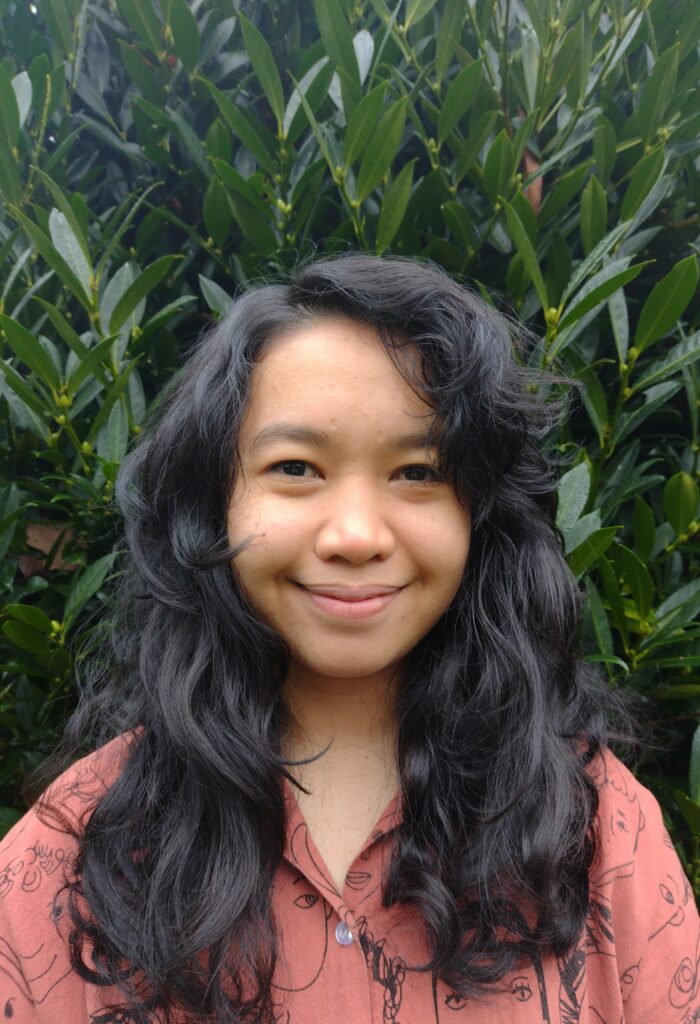Introducing WorldFish interns, Jonabel and Ngan
KYTOS is partnering with WorldFish to conduct microbiome research in carp polyculture and tilapia farming systems. Together, we want to bring KYTOS technology closer to farmers. As a precursor for further investment in this project, two interns will be reviewing the current state of knowledge. Ms. Bui Ngoc Minh Ngan will be focusing on the microbiomes of carp polyculture systems, while Ms. Johnabel Huavas will be doing the same for tilapia farming systems. Both interns are funded by WorldFish under the project, Aquaculture: Increasing income, diversifying diets and empowering women in Bangladesh and Nigeria.
Meet Jonabel and Ngan! Check out the press release here.
Jonabel Huavas
Can you tell us something more about your background?
I earned my Master’s degree in Aquaculture Major in Health Management from Ghent University in 2021 through the VLIR-UOS scholarship. I have a Bachelor’s degree in Biology Major in Microbiology from the University of the Philippines Los Baños. My interests revolve around applied microbiology, molecular biology, alternative feeds and aquaculture nutrition, microbial management, and fish physiology.
Why did the WorldFish internship appeal to you?
When I first read about the internship post, one word stood out: microbiome. During my studies, I’ve learned and became fascinated about the huge impact and application of microorganisms. Working for WorldFish is also a great opportunity for me to learn from and work alongside aquaculture experts. The worldwide network and connection established by WorldFish is also an opportunity for me to meet and know different tilapia farmers and researchers across the world.
What are you looking to learn from the internship?
I wanted to learn about the current status of tilapia aquaculture in the perspective of microbial community management. During my graduate studies in the midst of pandemic, I was not able to do fieldwork and internship in commercial farms or other research centers. Doing this comprehensive study and networking with different stakeholders of the tilapia industry will help me learn about the current situation when it comes to microbiome management. I am also interested to learn about Kytos technology and how it can further improve aquaculture practices.

Any particular achievement you want to reach?
Being in the scientific research field, writing is inevitable. First achievement that I want to reach through this internship is to become a better writer and storyteller. Next goal in mind is to provide a tangible output that will help level up current tilapia farming systems into data-driven, microbiome-based management.
Farmers have been waiting for decades on microbiome management technologies, where do you see yourself have the biggest impact?
I see myself having the biggest impact in establishing the baseline—the current perception and appreciation towards microbiome-based management. My contribution lies into looking for the gaps between the farmers’ present understanding towards microbiome and assisting with the preparation of potential research project that will incorporate Kytos technology for best tilapia farming practices.

Bui Ngoc Minh Ngan
Can you tell us something more about your background?
I am a Master Graduate in Aquaculture at Ghent University. My research interests are in understanding the interaction of aquaculture species with their environment in order to produce healthy animals. I specialize in fish physiology, microbial community management, the host-microbiome, and microbe-microbe interactions. My objective is to work in an enriching atmosphere that promotes lifelong learning and professional growth.
Why did the WorldFish internship appeal to you?
As a graduate student in aquaculture, I want to work in a professional environment to put my acquired knowledge into practice and increase my network. WorldFish is the ideal workplace for me to start my professional career. I want to contribute and to learn how they create, advance, and translate scientific research on aquatic food systems into scalable solutions to ensure sustainability in aquaculture.
What are you looking to learn from the internship?
I am looking for opportunities to stimulate international network, extend existing knowledge, gain new insights, and learn new techniques. An internship at WorldFish would be a promising position that offers a good chance for my personal growth and contribution to the team.
Any particular achievement you want to reach?
I want to use my abilities and expertise to provide dependable and successful outcomes in the field of the microbiome in carp polyculture systems. Moreover, by working in WorldFish, I want to correct my shortcomings and upgrade my abilities to advance my career.
Farmers have been waiting for decades on microbiome management technologies, where do you see yourself have the biggest impact?
With the internship at WorldFish, my research about microbiomes in carp polyculture systems can be transformed into a series of research and practical techniques. It can help in the creation of prediction models for the microbial communities of commercial fish species to avoid invasive pathogens and improve fish health.

